معرفی و دانلود نسخه انگلیسی کتاب انسان خردمند:تاریخ مختصر بشر
Sapiens: A Brief History of Humankind
نویسنده:
Yuval Noah Harari
یووال نوح هراری
پرفروش ترین کتاب نیویورک تایمز
درباره کتاب انسان خردمند؛ تاریخ مختصر بشر نوشته یووال نوح هراری:
کتاب «انسان خردمند» روایتی تاریخی و علمی از پیدایش و تکامل انسان است. نویسنده با بررسی زیستشناسی و تاریخیِ انسان صدهزار سال پیش تا انسان امروزی، درک ما را از انسان و بشریت افزایش میدهد. دکتر یووال نوح هراری، دانشآموخته دانشگاه آکسفورد و استاد تاریخ جهان دانشگاه اورشلیم است و این کتاب را در سال ۲۰۱۴ منتشر کرد. انسان خردمند تاکنون به بیش از چهل زبانِ زنده دنیا ترجمه شده و یکی از پرفروشترین کتابهای نیویورکتایمز است.
نویسنده در این کتاب سیر تحول زیستی و فکری انسان را به چهار بخش تقسیم میکند: انقلاب شناختی که انسان خودش و پیرامونش را شناخت. انقلاب کشاورزی که بین ۸۵۰۰ تا ۹۵۰۰ سال پیش از میلاد رخ داد و انسان را یکجانشین کرد. بخش سوم در مورد وحدت بشر است، که نشان میدهد چطور به تدریج سازمانهای سیاسی تحکیم یافتند و به سمت یک امپراتوری جهانی حرکت کردند. در بخش چهارم کتاب، به موضوع انقلاب علمی میپردازد و اینکه چگونه این تحول باعث شد انسانها با نابودی بقیه گونهها خود را به سلطهگران این دنیا تبدیل کنند.
هفتادهزار سال پیش، «انسان خردمند» موجودی کماهمیت بود که بیش از جاندارن دیگر، تاثیری بر محیط نداشت. او میکوشید تنها حیات خود را در میان موجودات دیگر حفظ کند؛ اما براثر تحولات زیستی و تغییرات تطبیقی دیگر با محیط مانند کشف آتش، کار گروهی، ساختن ابزار و… به رأس هرم جانداران صعود کرد. ضرورت تطبیق سریع با محیطزیست، احساس ترس، حس غلبهجویی بر محیط و سایر موجودات، او را بسیار بیرحم، تهاجمی و خطرناک کرد و اکنون او خود را خدا و ارباب جهان میداند.
هراری در انتهای کتاب موضوع ادعای خدایی انسان را مطرح میکند و میگوید با این که انسان تا کنون کارهای شگفتانگیزی کرده است، همچنان ناخشنود و ناراضی است و نمیداند با این قدرتی که دارد چه کند. ما تبدیل به خدایان خودساختهای شدهایم که به دنبال چیزی جز آسایش و شادی خود نیستیم و تازه هرگز هم به رضایت خاطر نمیرسیم. آیا چیزی خطرناکتر از خدایانِ ناخشنود و ولنگار که نمیدانند چه میخواهند وجود دارد؟
این اثر برای تمامی پژوهشگران تاریخ و علاقهمندان به مباحث جدید تاریخ بشر نگاشته شده و البته برای تمام کسانی که میخواهند بدانند انسانها از کجا آمدند و آیندهشان چه خواهد شد.
معرفی کتاب های جدید در پیج اینستاگرام بیبلیوفایل
تقسیمبندی تاریخ و موقعیت انسان خردمند
هراری تاریخ را به چهار بخش تقسیم میکند؛
- انقلاب شناختی
- انقلاب کشاورزی
- وحدت انسانها
- انقلاب علمی
بحث اصلی هراری این است که انسانهای خردمند به این دلیل بر جهان حاکم شدهاند که تنها حیوانی هستند که میتوانند در تعداد بالا با انعطاف بالایی همکاری کنند. ۱۰۰ هزار سال پیش انسان خردمند به عنوان موجود ناچیزی بین سایر موجودات در حیطه طبیعت زندگی میکرد و تاثیرش بر طبیعت بیشتر از جانوران دیگر نبود. اما در درجه اول پارهای تحولات زیستی، مانند تغییرات بدنی برای تطابق با محیط زیست و تغییرات دیگری مثل کشف آتش، ساختن ابزارهای سنگی و… انسانها را با چنین سرعتی به رأس هرم جانداران فرستاد که حس غلبه جویی بر محیط زیست و سایر موجودات، او را بسیار بیرحم و تهاجمی و خطرناک کرده است. هراری استدلال میکند که انسانهای ماقبل تاریخ ممکن است مرتکب یک نسلکشی عظیم شده باشند که به انقضای گونههای دیگر انسان منجر شده است.
فهرست مطالب کتاب انسان خردمند نوشته هراری:
در بخش اول در مورد این عناوین خواهید خواند:
- موجود بیاهمیت
- درخت دانش
- یک روز از زندگی آدم و حوا
- طوفان بزرگ
بخش دوم با عنوان انقلاب کشاورزی:
- بزرگترین فریب تاریخ
- ساختن اهرام
- اضافه بار حافظه
- در تاریخ عدالتی نیست
بخش سوم با عنوان وحدت بشر:
- پیکان تاریخ
- رایحه پول
- بینشهای امپراتوری
- قانون دین
- راز موفقیت
بخش چهارم شامل عناوین زیر است:
- کشف نادانی
- پیوند علم و امپراتوری
- کیش سرمایهداری
- چرخهای صنعت
- انقلاب دائمی
- و تا آخر عمر به خوبی و خوشی زندگی کردند
- فرجام خردمند
- و کلام آخر: موجودی که خدا شد
اینها عناوین ۴ بخش اصلی کتاب هستند که با نگاهی به این فهرست میتوانید گستردگی موضوعات و کامل بودن کتاب مطرح شده را ببینید. در ادامه این چهار فصل بخشی با عنوان یادداشتها و نمایه نیز به چشم میخورد.
کتاب علاوه بر بخشهای اصلی خود، یک گاه شمار تاریخی هم دارد که از ۱۳ و نیم میلیارد سال پیش شروع شده و تا آینده میرسد.
انقلابهای نجات دهنده انسان خردمند
اولین انقلابی که با عنوان انقلاب شناختی در این کتاب به آن اشاره شده است انقلابی است که حدود ۷۰ هزار سال پیش در گونه هوموساپین یعنی انسان خردمند اتفاق افتاده است و باعث درک بیشتر نسبت به محیط اطراف شده. انسان خردمند با دست پیدا کردن به این شناخت توانسته از قدرت فکر و خیال پردازی استفاده کند و با صحبت کردن درباره آنها، افراد بیشتری را در دستههای بزرگ برای مقابله با گونههای انسانی دیگر دور هم جمع کند.
دومین انقلاب، انقلاب کشاورزی است که حدود ۱۱ هزار سال پیش اتفاق افتاد که انسانها را از شکار کردن و جابجاییهای مداوم با کاشت محصول و پرورش حیوانات آشنا و تبدیل به یکجا نشینی کرد. با این تغییرات میزان غذا بیشتر و جمعیت انسانها بیشتر شد.
انقلاب سوم حدود ۵۰۰سال پیش اتفاق افتاد که یک انقلاب علمی، صنعتی، اطلاعاتی، بیوتکنولوژیکی بود که زندگی بشر را به شکل زندگی امروزی درآورد. به شکلی که امروز میتوان از انسانهای نامیرا و سایبرگهایی صحبت کرد که تا چندین سال پیش فقط و فقط موضوع فیلمهای تخیلی بودند.
متن این کتاب تنها محدود به این دو انقلاب نیست. در بخشهایی دیگر به تحولات بزرگی که در زندگی اقتصادی، اجتماعی و سیاسی انسان اتفاق افتاده است اشاره میکند. اتفاقهایی مثل گسترش زبان که باعث شکل گیری فرهنگ شد، به وجود آمدن مذهب که باعث ایجاد اعتقاد به تک خدایی و چند خدایی و شکل گیری مذاهب دیگر، به وجود آمدن مفهوم پول، اعتبار و اقتصاد که باعث ایجاد و شکل گیری امپراتوریهای بزرگ و ظهور کاپیتالیسم شد.
این کتاب مرجع خوبی برای گرفتن پاسخ سوالاتی است که ذهن هر آدمی را به خود مشغول میکند. پاسخ این سوالات کاملا صریح و گاهی غافلگیر کننده است.
بعد از انقلاب کشاورزی چه بر سر انسان خردمند آمد؟
تغییرات همیشه زندگی را آسانتر نمیکند و در این کتاب متوجه این موضوع خواهید شد که انقلاب کشاورزی اگرچه جمعیت بشر را بیشتر کرد و دسترسی به غذا آسانتر شد اما زندگی او را دشوارتر کرد. این انقلاب در کنار همه امکاناتی که در دسترس مردم گذاشته بود اما خطر قحطی، بیماری مسری و ناامنی، نسل بشر را تهدید میکرد.
انسانها برای ادامه حیات و به این خاطر که دچار خطراتی مانند قحطی و… نشوند مجبور بود بیشتر کار کنند و زندگی دشوارتری نسبت به دوران شکارگری و خوراک جویی داشته باشند.
در بخشهای دیگر کتاب، هراری به زندگی مدرن بشر میپردازد و میگوید که «ژن انسانی قبل از اتفاق افتادن انقلاب کشاورزی شکل گرفته و تکامل پیدا کرده و بعد از از این اتفاق هر تغییری که در زندگی بشر رخ داد با ذات و طبیعت او هماهنگی نداشت.»
به طور مثال ما در عصر تکنولوژی زندگی میکنیم. بسیاری معتقدند که علم و تکنولوژی پاسخ تمام مسائل ما را دارد. فقط باید برای دانشمندان و متخصصان عرصه عمل را فراهم کنیم تا آنها بهشت را در همین جا، در زمین، برای ما تدارک ببینند. … یک زیست شناس را در نظر بگیرید که در جستجوی درک سیستم دفاعی بدن است، به آزمایشگاه و لولههای آزمایش و میکروسکوپهای الکترونی نیاز خواهد داشت. این زیست شناس در هر مرحله که پشت سر میگذارد در پی شکل دادن به بازارهای اعتباری است. باید کامپیوتر بخرد، بانکهای عظیم اطلاعاتی به وجود بیاورد و… اینها اتفاقاتی است که سرمایه داری به عنوان یک سبک زندگی در ذهن ما قرار داده است تا بیشتر از قبل پیشرفت داشته باشیم.
آدم، ارباب جهان
تاریخ بشر از اولین انسانها گرفته تا نقاط تحول بنیادین انقلابهای کشاورزی، انقلابهای شناختی و علمی بازهای است که توسط دکتر هراری در این کتاب مورد تحلیل و بررسی قرار گرفته است. اگر تا به حال از خودتان پرسیدهاید که: «اگر من فلان ژن از اجدادم را نداشتم میتوانستم آدم خوشحالتر و سعادتمندتری باشم؟ یا اینکه چطور میتوانم بر نسلها و قرنهای آینده تاثیرگذار باشم؟» دکتر هراری با استفاده از علوم مردم شناسی، دیرینه شناسی، زیست شناسی و اقتصاد، دراین کتاب عنوان میکند که چگونه فراز و نشیبهای تاریخ، جوامع بشری، حیوانات و گیاهان پیرامون و حتی افکار و شخصیتهای ما را شکل داده است.
زبان عامل موفقیت آدمی
یکی از عواملی که باعث موفقیت انسان خردمند شد زبان منحصر به فرد بود.
«همه حیوانات نوعی زبان دارند. حتی حشراتی مثل زنبور و مورچه نیز میتوانند با شیوه پیچیده خاص خود با هم رابطه برقرار کنند و محل غذا را به همدیگر اطلاع دهند.»
اگرچه زبان عاملی اساسی در پیشرفت انسان بود اما کافی نبود:
«سر این کار احتمالا در شکل گیری قدرت تخیل بود. تعداد زیادی از افراد غریبه و ناآشنا، با اعتقاد به اسطورههای مشترک، میتوانند با موفقیت با هم همکاری کنند. … دو کاتولیک که هرگز یکدیگر را ندیدهاند میتوانند در کنار هم به جنگ صلیبی بروند… چرا که معتقدند خدا در قالب انسان تجسد یافت و اجازه داد به صلیبش بکشند تا ما را از بار گناه برهاند. دو نفر صرب که اصلا یکدیگر را نمیشناسند ممکن است جانشان را برای یکدیگر به خطر اندازند زیرا هر دو به وجود ملت صرب و سرزمین صرب اعتقاد دارند.»
اسطورههای مشترک با توانایی ایجاد واقعیتهایی خیالی قانونها، مثل حقوق بشر، پول، ملت، باعث همکاری گروههای بزرگ بیشتری میشوند. همانطور که در سطرهای بالایی اشاره شد این اتفاق ناشی از انتخاب سرمایه داری به عنوان یک سبک زندگی است. در کتاب «انسان خردمند» نوشته دکتر هراری داستان به وجود آمدن این اسطورههای مشترک به واسطه پول، انقلاب کشاورزی، انقلاب علمی و صنعتی، امپراتوریها، ادیان، خط، عدالت، سرمایهداری، معنای زندگی و تاریخ خوشبختی و فرجام انسان خردمند به شکل بسیار جذاب روایت شده است.
در ستایش کتاب انسان خردمند بسیار نوشتهاند. در اینجا به برخی از آنها اشاره میکنیم:
دیلی تلگراف The Daily Telegraph – از روزنامههای لندن که در ۱۸۵۵ تاسیس شد:
شفافیت هراری در مباحث زیستشناسی و انسانشناسی تکاملی و اقتصاد، و گرایشهای تاریخی او بسیار دلپذیر است. از او دور نشوید تا خیلی چیزها یاد بگیرید.
جَرِد دایمونده – دانشمند و نویسنده کتاب فروپاشی:
انسان خردمند با جنجال فراوان به فهرست پرفروشترین کتابهای جهان راه یافته است. دلیل آن ساده است: به بزرگترین مسائل تاریخ و جهان امروز میپردازد و به زبانی فوقالعاده زنده و فراموشنشدنی نوشته شده است. عاشقش خواهید شد!
ساندی تایمز The Sunday Times – روزنامه معتبر پرفروش انگلیسی:
کتابی که تارعنکبوتهای مغزتان را کنار میزند. هراری روشنفکر زبردستی است که اشارات منطقی ناگهانیاش خواننده را به حیرت و تحسین وامیدارد. قدرت شفافیت قلم او دنیا را شگفتانگیز و نو جلوه میدهد.
تایمز The Times – یک روزنامه سراسری در کشور بریتانیا که در ۱۷۸۵ تاسیس شد:
هراری به معنای واقعی نویسنده است، نویسندهای به راستی هوشمند با قلمی شفاف و ظریف. نگرش او به اشتعارههای زندگی شگفتانگیز است.
در بخشهایی از کتاب انسان خردمند میخوانید:
«پیدایش کشاورزی پدیدهای بسیار تدریجی بود که صدها و هزاران سال به درازا کشیده… وقتی انسان جنگلها و بیشهها را میسوزاند این هم به رشد گندم کمک میکرد. این انسان نبود که گندم را اهلی کرد بلکه این گندم بود که انسان را اهلی کرد. چون طبق اصول تکاملی، موفقیت یک گونه گیاهی و جانوری در افزایش تعداد آن است و گندم نیز چند هزار سال پیش یک گونه محدود بود که به طور وحشی در مناطق بسیار کمی میرویید اما به لطف انقلاب کشاورزی امروزه میلیونها هکتار از اراضی در کره زمین محل رشد این گونه گیاهی شده است.»
همه گونههای انسانی، علیرغم تفاوتهای زیادشان، چند ویژگی مشترک دارند که آنها را از موجوات دیگر متمایز میکند. بارزترین ویژگی این است که انسان، در قیاس با سایر جانداران، مغز فوقالعاده بزرگتری دارد. (انسان خردمند)
هزار سال قبل، انسانها با وجود استفاده از آتش هنوز موجوداتی کماهمیت بودند. حالا دیگر میتوانستند شیرها را فراری دهند، خود را در شبهای سرد گرم کنند، و جنگلی را به آتش بکشند. اما اگر همه گونههای انسانیِ موجود را به حساب آوریم، شاید تعدادشان هنوز از یک میلیون انسانِ ساکن در مجمعالجزایر اندونزی و شبهجزیره ایبری فراتر نمیرفت؛ این یعنی صرفا یک نقطه روی صفحه رادار زیستبومی. (انسان خردمند)
چرا مردم خود را با غذاهای پرکالری که برای جسمشان هم مضر است خفه میکنند؟ جوامع مرفه امروزی درگیر بلای چاقی هستند که به سرعت دارد به کشورهای در حال رشد هم سرایت میکند. تا وقتی که عادات غذایی نیاکان خوراک جویان را بررسی نکنیم، یافتن علت زیادهروی ما در خوردن غذاهای پرچرب و بسیار شیرین معما باقی میماند. در علفزارهای استوایی و جنگلهایی که آنها سکونت داشتند غذاهای شیرین پرکالری بسیار کمیاب و منابع غذایی به طور کلی کم بود. ۳۰هزار سال پیش، «خوراکجو»ی عادی تنها به یک نوع غذای شیرین دسترسی داشت و آن میوههای رسیده بود. اگر یک زن عصر حجری به یک درخت پر از انجیر برمیخورد منطقیترین کار این بود که، قبل از آن که بابونهای محلی آن درخت را لخت کنند، تا جایی که میتواند از آن انجیرها بخورد. غریزه زیادهروی در خوردن غذاهای پرکالری جزئی از ژنهای ما شد. امروزه ما شاید در آپارتمانهای بسیار بلند با یخچالهایی پر از غذا زندگی کنیم، ولی دیانای ما هنوز گمان میکند که در علفزارهای استوایی به سر میبرد. برای همین است که اگر یک لیوان بستنی در یخچال پیدا کنیم آن را کامل میبلعیم و پشتش هم یک شیشه بزرگ نوشابه را تا ته سر میکشیم. (انسان خردمند)
اما از منظر گله حیوانات، و نه چوپانها، نمیتوان به نتیجه دیگری به جز این رسید که انقلاب کشاورزی برای اکثر حیوانات اهلی شده فاجعهای وحشتناک بود. «موفقیت» تکاملی این حیوانات بیمعنی است. یک کرگدن وحشی کمیاب در آستانه انقراض شاید بسیار خوشبختتر از گوسالهای باشد که ناچار است تمام زندگی کوتاه خود را در قفسی تنگ سپری کند و پروار شود تا استیک لذیذی از آن تهیه کنند. کرگدن خوشنود ناراضی نخواهد بود از اینکه جزو آخرین اعضای گونهاش است. موفقیت عددی گونه گوساله تسلی خاطر اندکی است در برابر درد و رنجی که هر یک از افراد این گونه بدان دچار هستند. (انسان خردمند)
انقلاب کشاورزی یکی از بحثبرانگیزترین وقایع تاریخ است. بعضی طرفداران دو آتشه آن ادعا میکنند که این انقلاب بشر را در مسیر رفاه و ترقی قرار داد. دیگران آن را منجر به تباهی بشر میدانند و معتقدند که نقطه عطف سرنوشتسازی بود که باعث شد انسان خردمند همزیستی صمیمانه خود با طبیعت را رها کند و به سوی حرص و آز و ازخودبیگانگی بشتابد. این مسیر، به هر سمتی که بود، راه برگشتی نداشت. کشاورزی جمعیت را چنان به سرعت و از اساس افزایش داد که هر جامعه کشاورزی پیچیدهای اگر به شکار و گردآوری خوراک بازمیگشت دیگر نمیتوانست مثل سابق به بقای خود ادامه دهد. (انسان خردمند)
پول سکه و اسکناس نیست. پول هرآن چیزی است که انسانها تمایل دارند با استفاده از آن بتوانند به طور نظاممند ارزش چیزهای دیگر را به منظور مبادله کالاها و خدمات نشان دهند.
تنها نظام مبتنی بر اعتماد مخلوق انسانهاست که تقریبا هر شکافی میان فرهنگها را پر میکند و کسی را بر پایه گرایشهای دینی یا جنسیتی یا نژادی یا سنی مورد تبعیض قرار نمیدهد. در سایه وجود پول حتی کسانی که همدیگر را نمیشناسند و به یکدیگر اعتماد ندارند میتوانند همکاری موثری با یکدیگر داشته باشند. (انسان خردمند)
اولین خط آهن تجاری جهانی در ۱۸۳۰ در بریتانیا افتتاح شد. در ۱۸۵۰ کشورهای غربی ۴۰هزار کیلومتر راهآهن داشتند، اما در تمام آسیا و آفریقا و آمریکای لاتین فقط ۴هزار کیلومتر خط آهن وجود داشت. در ۱۸۸۰، غرب به خود میبالید که بیش از ۳۵۰هزار کیلومتر خط آهن دارد، در حالی که در سایر نقاط دنیا فقط ۳۵هزار کیلومتر راهآهن وجود داشت (و بیشتر آن را هم انگلیسیها در هند کشیده بودند). (انسان خردمند)
پس از سال ۱۹۰۸، و بخصوص بعد از سال ۱۹۴۵، طمع سرمایهداری عمدتا به دلیل ترس از کمونیسم، تا حدود مهار شد. اما بیعدالتی هنوز حکمفرماست. کیک اقتصادی ۲۰۱۴ بسیار بزرگتر از کیک سال ۱۵۰۰ است، اما آن چنان نامساوی تقسیم شده است که بسیاری از دهقانان آفریقایی و کارگران اندونزی بعد از یک روز کار سخت با غذایی کمتر از غذای اجدادشان در ۵۰۰ سال قبل به خانه برمیگردند. ممکن است رشد اقتصاد مدرن هم مثل انقلاب کشاورزی، فریبی بسیار بزرگ از کار درآید. (انسان خردمند)
در مجموع امروزه دهها میلیارد حیوان در دامداریها زندگی میکنند که بخشی از خط تولید ماشینی هستند و در حدود ۵۰ میلیارد از آنها سالانه کشته میشوند. این روشهای صنعتی دامداری به افزایش بیسابقه تولیدات کشاورزی و ذخایر غذایی انسانها انجامیده است. پرورش صنعتی حیوانات در کنار ماشینی شدن کشت گیاهان، اساس کل نظام اقتصادی – اجتماعی مدرن است. (انسان خردمند)
و سرانجام، فقط در صورتی میتوانیم به خاطر دستاوردهای بیسابقه انسان خردمند امروزی به خود ببالیم که سرنوشت تمام موجودات دیگر را کاملا نادیده بگیریم. بخشهای زیادی از نعمات مادی که به آن فخر میفروشیم و از ما در مقابل بیماریها و قحطی محافظت میکند به بهای شکنجه و قربانی شدن میمونهای آزمایشگاهی، گاوهای شیرده، و مرغهای تسمهنقالهای به دست آمده است. در طی دو قرن اخیر، دهها میلیارد از آنها قربانی نظامی از استثمار صنعتی بودهاند که قساوتش در تاریخ سیاره زمین بیسابقه بوده است. اگر فقط یک دهم آن چه را فعالان حقوق حیوانات مطرح میکنند بپذیریم، پس چهبسا کشاورزی صنعتی مدرن بزرگترین جنایت تاریخ باشد. (انسان خردمند)
متاسفانه حاکمیت انسان خردمند بر زمین تا کنون چندان حاصلی به بار نیاورده است تا به اعتبار آن بر خود ببالیم. ما محیط اطرافمان را تحت کنترل درآوردهایم، محصولات غذایی را افزایش دادهایم، شهرها ساختیم، امپراتوریها برپا کردیم و شبکههای تجاری گسترده ایجاد کردیم. اما آیا توانستیم از میزان رنج در جهان بکاهیم؟ بارها ثابت شده است که افزایش دائمی قدرت بشر لزوما به رفاه آحاد انسانهای خردمند نینجامیده است و منجر به فلاکتی غیرقابل تصور برای موجودات دیگر شده است. (انسان خردمند)
بشر در طی خلق تاریخ نه تنها خود، بلکه طبیعت درونی خود و طبیعت دیگر جانداران و همچنین طبیعت بیرونی را دگرگون کرده است. اما هدف و معنای ایجاد این تغییرات چه بوده است و انسان خردمند به کجا می رود ؟ کسی نمی داند. حیوانات در طی میلیون ها و میلیاردها سال به زندگی و تکامل خود ادامه دادند تا زندگی کنند و به نیازها و غرائز خود پاسخ دهند. اما انسان خردمند با اعمال کنترل بر حیات آنها درصدد برآمد تا طبیعت آنها را دگرگون سازد تا آنها به جای پاسخگویی به نیازهای خودشان جوابگوی نیازهای انسان ها باشند . ضرورت تطبیق سریع با محیط زیست احساس ترس حس غلبه جویی بر محیط زیست و سایر موجودات او را بسیار بی رحم و تهاجمی و خطرناک نمود.
توضیحات کتاب Sapiens نوشته ی Yuval Noah Harari :
New York Times Bestseller
A Summer Reading Pick for President Barack Obama, Bill Gates, and Mark Zuckerberg
From a renowned historian comes a groundbreaking narrative of humanity’s creation and evolution—a #1 international bestseller—that explores the ways in which biology and history have defined us and enhanced our understanding of what it means to be “human.”
One hundred thousand years ago, at least six different species of humans inhabited Earth. Yet today there is only one—homo sapiens. What happened to the others? And what may happen to us?
Most books about the history of humanity pursue either a historical or a biological approach, but Dr. Yuval Noah Harari breaks the mold with this highly original book that begins about 70,000 years ago with the appearance of modern cognition. From examining the role evolving humans have played in the global ecosystem to charting the rise of empires, Sapiens integrates history and science to reconsider accepted narratives, connect past developments with contemporary concerns, and examine specific events within the context of larger ideas.
Dr. Harari also compels us to look ahead, because over the last few decades humans have begun to bend laws of natural selection that have governed life for the past four billion years. We are acquiring the ability to design not only the world around us, but also ourselves. Where is this leading us, and what do we want to become?
Featuring 27 photographs, 6 maps, and 25 illustrations/diagrams, this provocative and insightful work is sure to spark debate and is essential reading for aficionados of Jared Diamond, James Gleick, Matt Ridley, Robert Wright, and Sharon Moalem.
قسمت هایی از متن نسخه انگلیسی کتاب انسان خردمند :
Sapiens Quotes
― Sapiens: A Brief History of Humankind
“How do you cause people to believe in an imagined order such as Christianity, democracy or capitalism? First, you never admit that the order is imagined.”
― Sapiens: A Brief History of Humankind
“Culture tends to argue that it forbids only that which is unnatural. But from a biological perspective, nothing is unnatural. Whatever is possible is by definition also natural. A truly unnatural behaviour, one that goes against the laws of nature, simply cannot exist, so it would need no prohibition.”
― Sapiens: A Brief History of Humankind
“According to Buddhism, the root of suffering is neither the feeling of pain nor of sadness nor even of meaninglessness. Rather, the real root of suffering is this never-ending and pointless pursuit of ephemeral feelings, which causes us to be in a constant state of tension, restlessness and dissatisfaction. Due to this pursuit, the mind is never satisfied. Even when experiencing pleasure, it is not content, because it fears this feeling might soon disappear, and craves that this feeling should stay and intensify. People are liberated from suffering not when they experience this or that fleeting pleasure, but rather when they understand the impermanent nature of all their feelings, and stop craving them. This is the aim of Buddhist meditation practices. In meditation, you are supposed to closely observe your mind and body, witness the ceaseless arising and passing of all your feelings, and realise how pointless it is to pursue them. When the pursuit stops, the mind becomes very relaxed, clear and satisfied. All kinds of feelings go on arising and passing – joy, anger, boredom, lust – but once you stop craving particular feelings, you can just accept them for what they are. You live in the present moment instead of fantasising about what might have been. The resulting serenity is so profound that those who spend their lives in the frenzied pursuit of pleasant feelings can hardly imagine it. It is like a man standing for decades on the seashore, embracing certain ‘good’ waves and trying to prevent them from disintegrating, while simultaneously pushing back ‘bad’ waves to prevent them from getting near him. Day in, day out, the man stands on the beach, driving himself crazy with this fruitless exercise. Eventually, he sits down on the sand and just allows the waves to come and go as they please. How peaceful!”
― Sapiens: A Brief History of Humankind
― Sapiens: A Brief History of Humankind
“Consistency is the playground of dull minds.”
― Sapiens: A Brief History of Humankind
“How many young college graduates have taken demanding jobs in high-powered firms, vowing that they will work hard to earn money that will enable them to retire and pursue their real interests when they are thirty-five? But by the time they reach that age, they have large mortgages, children to school, houses in the suburbs that necessitate at least two cars per family, and a sense that life is not worth living without really good wine and expensive holidays abroad. What are they supposed to do, go back to digging up roots? No, they double their efforts and keep slaving away.”
― Sapiens: A Brief History of Humankind
“History is something that very few people have been doing while everyone else was ploughing fields and carrying water buckets.”
― Sapiens: A Brief History of Humankind
“Biology enables, Culture forbids.”
― Sapiens: A Brief History of Humankind
“We did not domesticate wheat. It domesticated us.”
― Sapiens: A Brief History of Humankind
“The romantic contrast between modern industry that “destroys nature” and our ancestors who “lived in harmony with nature” is groundless. Long before the Industrial Revolution, Homo sapiens held the record among all organisms for driving the most plant and animal species to their extinctions. We have the dubious distinction of being the deadliest species in the annals of life.”
― From Animals into Gods: A Brief History of Humankind
“This is the essence of the Agricultural Revolution: the ability to keep more people alive under worse conditions.”
― Sapiens: A Brief History of Humankind
“Money is the most universal and most efficient system of mutual trust ever devised.”
― Sapiens: A Brief History of Humankind
“So, monotheism explains order, but is mystified by evil. Dualism explains evil, but is puzzled by order. There is one logical way of solving the riddle: to argue that there is a single omnipotent God who created the entire universe – and He’s evil. But nobody in history has had the stomach for such a belief.”
― Sapiens: A Brief History of Humankind
“The capitalist and consumerist ethics are two sides of the same coin, a merger of two commandments. The supreme commandment of the rich is ‘Invest!’ The supreme commandment of the rest of us is ‘Buy!’ The capitalist–consumerist ethic is revolutionary in another respect. Most previous ethical systems presented people with a pretty tough deal. They were promised paradise, but only if they cultivated compassion and tolerance, overcame craving and anger, and restrained their selfish interests. This was too tough for most. The history of ethics is a sad tale of wonderful ideals that nobody can live up to. Most Christians did not imitate Christ, most Buddhists failed to follow Buddha, and most Confucians would have caused Confucius a temper tantrum. In contrast, most people today successfully live up to the capitalist–consumerist ideal. The new ethic promises paradise on condition that the rich remain greedy and spend their time making more money and that the masses give free reign to their cravings and passions and buy more and more. This is the first religion in history whose followers actually do what they are asked to do. How though do we know that we’ll really get paradise in return? We’ve seen it on television.”
― קיצור תולדות האנושות
“As far as we can tell from a purely scientific viewpoint, human life has absolutely no meaning. Humans are the outcome of blind evolutionary processes that operate without goal or purpose. Our actions are not part of some divine cosmic plan, and if planet earth were to blow up tomorrow morning, the universe would probably keep going about its business as usual. As far as we can tell at this point, human subjectivity would not be missed. Hence any meaning that people inscribe to their lives is just a delusion.”
― Sapiens: A Brief History of Humankind
“happiness does not really depend on objective conditions of either wealth, health or even community. Rather, it depends on the correlation between objective conditions and subjective expectations.”
― Sapiens: A Brief History of Humankind
“Is there anything more dangerous than dissatisfied and irresponsible gods who don’t know what they want?”
― Sapiens: A Brief History of Humankind
“Nothing captures the biological argument better than the famous New Age slogan: ‘Happiness begins within.’ Money, social status, plastic surgery, beautiful houses, powerful positions – none of these will bring you happiness. Lasting happiness comes only from serotonin, dopamine and oxytocin.”
― Sapiens: A Brief History of Humankind
“Voltaire said about God that ‘there is no God, but don’t tell that to my servant, lest he murder me at night’. Hammurabi would have said the same about his principle of hierarchy, and Thomas Jefferson about human rights. Homo sapiens has no natural rights, just as spiders, hyenas and chimpanzees have no natural rights. But don’t tell that to our servants, lest they murder us at night.”
― Sapiens: A Brief History of Humankind
“Large numbers of strangers can cooperate successfully by believing in common myths. Any large-scale human cooperation – whether a modern state, a medieval church, an ancient city or an archaic tribe – is rooted in common myths that exist only in people’s collective imagination.”
― Sapiens: A Brief History of Humankind
“Each year the US population spends more money on diets than the amount needed to feed all the hungry people in the rest of the world.”
― Sapiens: A Brief History of Humankind
“How can we distinguish what is biologically determined from what people merely try to justify through biological myths? A good rule of thumb is ‘Biology enables, Culture forbids.’ Biology is willing to tolerate a very wide spectrum of possibilities. It’s culture that obliges people to realize some possibilities while forbidding others. Biology enables women to have children – some cultures oblige women to realize this possibility. Biology enables men to enjoy sex with one another – some cultures forbid them to realize this possibility. Culture tends to argue that it forbids only that which is unnatural. But from a biological perspective, nothing is unnatural. Whatever is possible is by definition also natural. A truly unnatural behavior, one that goes against the laws of nature, simply cannot exist.”
― קיצור תולדות האנושות
“We study history not to know the future but to widen our horizons, to understand that our present situation is neither natural nor inevitable, and that we consequently have many more possibilities before us than we imagine.”
― Sapiens: A Brief History of Humankind
“Evolution has made Homo sapiens, like other social mammals, a xenophobic creature. Sapiens instinctively divide humanity into two parts, ‘we’ and ‘they’.”
― Sapiens: A Brief History of Humankind
“in order to change an existing imagined order, we must first believe in an alternative imagined order.”
― Sapiens: A Brief History of Humankind
“A meaningful life can be extremely satisfying even in the midst of hardship, whereas a meaningless life is a terrible ordeal no matter how comfortable it is.”
― Sapiens: A Brief History of Humankind
“There are no gods, no nations, no money and no human rights, except in our collective imagination.”
― Sapiens: A Brief History of Humankind
“One of history’s fews iron laws is that luxuries tend to become necessities and to spawn new obligations. Once people get used to a certain luxury, they take it for granted. Then they begin to count on it. Finally they reach a point where they can’t live without it. Over the few decades, we have invented countless time saving machines that are supposed to make like more relaxed – washing machines, vacuum cleaners, dishwashers, telephones, mobile phones, computers, email. We thought we were saving time; instead we revved up the treadmill of life to ten times its former speed and made our days more anxious and agitated.”
― Sapiens: A Brief History of Humankind
“Hierarchies serve an important function. They enable complete strangers to know how to treat one another without wasting the time and energy needed to become personally acquainted.”
― Sapiens: A Brief History of Humankind
“Domesticated chickens and cattle may well be an evolutionary success story, but they are also among the most miserable creatures that ever lived. The domestication of animals was founded on a series of brutal practices that only became crueller with the passing of the centuries.”
― Sapiens: A Brief History of Humankind
“In the 300 years of the crucifixion of Christ to the conversion of Emperor Constantine, polytheistic Roman emperors initiated no more than four general persecutions of Christians. Local administrators and governors incited some anti-Christian violence of their own. Still, if we combine all the victims of all these persecutions, it turns out that in these three centuries the polytheistic Romans killed no more than a few thousand Christians. In contrast, over the course, of the next 1,500 years, Christians slaughtered Christians by the millions, to defend slightly different interpretations of the religion of love and compassion.”
― קיצור תולדות האנושות
“Tolerance is not a Sapiens trademark. In modern times, a small difference in skin colour, dialect or religion has been enough to prompt one group of Sapiens to set about exterminating another group. Would ancient Sapiens have been more tolerant towards an entirely different human species? It may well be that when Sapiens encountered Neanderthals, the result was the first and most significant ethnic-cleansing campaign in history.”
― Sapiens: A Brief History of Humankind
“Obesity is a double victory for consumerism. Instead of eating little, which will lead to economic contraction, people eat too much and then buy diet products – contributing to economic growth twice over.”
― קיצור תולדות האנושות
“Two Catholics who have never met can nevertheless go together on crusade or pool funds to build a hospital because they both believe that God was incarnated in human flesh and allowed Himself to be crucified to redeem our sins. States are rooted in common national myths. Two Serbs who have never met might risk their lives to save one another because both believe in the existence of the Serbian nation, the Serbian homeland and the Serbian flag. Judicial systems are rooted in common legal myths. Two lawyers who have never met can nevertheless combine efforts to defend a complete stranger because they both believe in the existence of laws, justice, human rights – and the money paid out in fees. Yet none of these things exists outside the stories that people invent and tell one another. There are no gods in the universe, no nations, no money, no human rights, no laws, and no justice outside the common imagination of human beings.”
― Sapiens: A Brief History of Humankind
“According to the science of biology, people were not ‘created’. They have evolved. And they certainly did not evolve to be ‘equal’. The idea of equality is inextricably intertwined with the idea of creation. The Americans got the idea of equality from Christianity, which argues that every person has a divinely created soul, and that all souls are equal before God. However, if we do not believe in the Christian myths about God, creation and souls, what does it mean that all people are ‘equal’? Evolution is based on difference, not on equality. Every person carries a somewhat different genetic code, and is exposed from birth to different environmental influences. This leads to the development of different qualities that carry with them different chances of survival. ‘Created equal’ should therefore be translated into ‘evolved differently’.”
― Sapiens: A Brief History of Humankind
“Hunter-gatherers spent their time in more stimulating and varied ways, and were less in danger of starvation and disease. The Agricultural Revolution certainly enlarged the sum total of food at the disposal of humankind, but the extra food did not translate into a better diet or more leisure. Rather, it translated into population explosions and pampered elites. The average farmer worked harder than the average forager, and got a worse diet in return. The Agricultural Revolution was history’s biggest fraud.2 Who was responsible? Neither kings, nor priests, nor merchants. The culprits were a handful of plant species, including wheat, rice and potatoes. These plants domesticated Homo sapiens, rather than vice versa.”
― Sapiens: A Brief History of Humankind
“most cherished desires of present-day Westerners are shaped by romantic, nationalist, capitalist and humanist myths that have been around for centuries. Friends giving advice often tell each other, ‘Follow your heart.’ But the heart is a double agent that usually takes its instructions from the dominant myths of the day, and the very recommendation to ‘follow your heart’ was implanted in our minds by a combination of nineteenth-century Romantic myths and twentieth-century consumerist myths. The Coca-Cola Company, for example, has marketed Diet Coke around the world under the slogan ‘Diet Coke. Do what feels good.’ Even what people take to be their most personal desires are usually programmed by the imagined order. Let’s consider, for example, the popular desire to take a holiday abroad. There is nothing natural or obvious about this. A chimpanzee alpha male would never think of using his power in order to go on holiday into the territory of a neighbouring chimpanzee band. The elite of ancient Egypt spent their fortunes building pyramids and having their corpses mummified, but none of them thought of going shopping in Babylon or taking a skiing holiday in Phoenicia. People today spend a great deal of money on holidays abroad because they are true believers in the myths of romantic consumerism. Romanticism tells us that in order to make the most of our human potential we must have as many different experiences as we can. We must open ourselves to a wide spectrum of emotions; we must sample various kinds of relationships; we must try different cuisines; we must learn to appreciate different styles of music. One of the best ways to do all that is to break free from our daily routine, leave behind our familiar setting, and go travelling in distant lands, where we can ‘experience’ the culture, the smells, the tastes and the norms of other people. We hear again and again the romantic myths about ‘how a new experience opened my eyes and changed my life’. Consumerism tells us that in order to be happy we must consume as many products and services as possible. If we feel that something is missing or not quite right, then we probably need to buy a product (a car, new clothes, organic food) or a service (housekeeping, relationship therapy, yoga classes). Every television commercial is another little legend about how consuming some product or service will make life better. 18. The Great Pyramid of Giza. The kind of thing rich people in ancient Egypt did with their money. Romanticism, which encourages variety, meshes perfectly with consumerism. Their marriage has given birth to the infinite ‘market of experiences’, on which the modern tourism industry is founded. The tourism industry does not sell flight tickets and hotel bedrooms. It sells experiences. Paris is not a city, nor India a country – they are both experiences, the consumption of which is supposed to widen our horizons, fulfil our human potential, and make us happier. Consequently, when the relationship between a millionaire and his wife is going through a rocky patch, he takes her on an expensive trip to Paris. The trip is not a reflection of some independent desire, but rather of an ardent belief in the myths of romantic consumerism. A wealthy man in ancient Egypt would never have dreamed of solving a relationship crisis by taking his wife on holiday to Babylon. Instead, he might have built for her the sumptuous tomb she had always wanted. Like the elite of ancient Egypt, most people in most cultures dedicate their lives to building pyramids. Only the names, shapes and sizes of these pyramids change from one culture to the other. They may take the form, for example, of a suburban cottage with a swimming pool and an evergreen lawn, or a gleaming penthouse with an enviable view. Few question the myths that cause us to desire the pyramid in the first place.”
― Sapiens: A Brief History of Humankind
“Our language evolved as a way of gossiping.”
― Sapiens: A Brief History of Humankind
“On 20 July 1969, Neil Armstrong and Buzz Aldrin landed on the surface of the moon. In the months leading up to their expedition, the Apollo II astronauts trained in a remote moon-like desert in the western United States. The area is home to several Native American communities, and there is a story – or legend – describing an encounter between the astronauts and one of the locals. One day as they were training, the astronauts came across an old Native American. The man asked them what they were doing there. They replied that they were part of a research expedition that would shortly travel to explore the moon. When the old man heard that, he fell silent for a few moments, and then asked the astronauts if they could do him a favour. ‘What do you want?’ they asked. ‘Well,’ said the old man, ‘the people of my tribe believe that holy spirits live on the moon. I was wondering if you could pass an important message to them from my people.’ ‘What’s the message?’ asked the astronauts. The man uttered something in his tribal language, and then asked the astronauts to repeat it again and again until they had memorised it correctly. ‘What does it mean?’ asked the astronauts. ‘Oh, I cannot tell you. It’s a secret that only our tribe and the moon spirits are allowed to know.’ When they returned to their base, the astronauts searched and searched until they found someone who could speak the tribal language, and asked him to translate the secret message. When they repeated what they had memorised, the translator started to laugh uproariously. When he calmed down, the astronauts asked him what it meant. The man explained that the sentence they had memorised so carefully said, ‘Don’t believe a single word these people are telling you. They have come to steal your lands.”
― Sapiens: A Brief History of Humankind
“In contrast, humankind ascended to the top so quickly that the ecosystem was not given time to adjust. Moreover, humans themselves failed to adjust. Most top predators of the planet are majestic creatures. Millions of years of dominion have filled them with self-confidence. Sapiens by contrast is more like a banana republic dictator. Having so recently been one of the underdogs of the savannah, we are full of fears and anxieties over our position, which makes us doubly cruel and dangerous. Many historical calamities, from deadly wars to ecological catastrophes, have resulted from this over-hasty jump.”
― Sapiens: A Brief History of Humankind
“People easily understand that ‘primitives’ cement their social order by believing in ghosts and spirits, and gathering each full moon to dance together around the campfire. What we fail to appreciate is that our modern institutions function on exactly the same basis.”
― Sapiens: A Brief History of Humankind
“Two thousand years of monotheistic brainwashing have caused most Westerners to see polytheism as ignorant and childish idolatry. This is an unjust stereotype.”
― Sapiens: A Brief History of Humankind
“But the most important finding of all is that happiness does not really depend on objective conditions of either wealth, health or even community. Rather, it depends on the correlation between objective conditions and subjective expectations.”
― Sapiens: A Brief History of Humankind
“Most sociopolitical hierarchies lack a logical or biological basis – they are nothing but the perpetuation of chance events supported by myths.”
― Sapiens: A Brief History of Humankind
“Sapiens can cooperate in extremely flexible ways with countless numbers of strangers. That’s why Sapiens rule the world, whereas ants eat our leftovers and chimps are locked up in zoos and research laboratories.”
― Sapiens: A Brief History of Humankind
“The Scientific Revolution has not been a revolution of knowledge. It has been above all a revolution of ignorance. The great discovery that launched the Scientific Revolution was the discovery that humans do not know the answers to their most important questions. Premodern traditions of knowledge such as Islam, Christianity, Buddhism and Confucianism asserted that everything that is important to know about the world was already known. The great gods, or the one almighty God, or the wise people of the past possessed all-encompassing wisdom, which they revealed to us in scriptures and oral traditions. Ordinary mortals gained knowledge by delving into these ancient texts and traditions and understanding them properly. It was inconceivable that the Bible, the Qur’an or the Vedas were missing out on a crucial secret of the universe – a secret that might yet be discovered by flesh-and-blood creatures.”
― Sapiens: A Brief History of Humankind
“In fact, monotheism, as it has played out in history, is a kaleidoscope of monotheist, dualist, polytheist and animist legacies, jumbling together under a single divine umbrella. The average Christian believes in the monotheist God, but also in the dualist Devil, in polytheist saints, and in animist ghosts. Scholars of religion have a name for this simultaneous avowal of different and even contradictory ideas and the combination of rituals and practices taken from different sources. It’s called syncretism. Syncretism might, in fact, be the single great world religion.”
― קיצור תולדות האנושות
“The most common theory points to the fact that men are stronger than women and that they have used their greater physical power to force women into submission. A more subtle version of this claim argues that their strength allows men to monopolize tasks that demand hard manual labor, such as plowing and harvesting. This gives them control of food production, which in turn translates into political clout. There are two problems with this emphasis on muscle power. First, the statement that men are stronger is true only on average and only with regard to certain types of strength. Women are generally more resistant to hunger, disease, and fatigue than men. There are also many women who can run faster and lift heavier weights than many men. Furthermore, and most problematically for this theory, women have, throughout history, mainly been excluded from jobs that required little physical effort, such as the priesthood, law, and politics, while engaging in hard manual labor in the fields….and in the household. If social power were divided in direct relation to physical strength or stamina, women should have got far more of it. Even more importantly, there simply is no direct relation between physical strength and social power among humans. People in their sixties usually exercise power over people in their twenties, even though twenty-somethings are much stronger than their elders. …Boxing matches were not used to select Egyptian pharaohs or Catholic popes. In forager societies, political dominance generally resides with the person possessing the best social skills rather than the most developed musculature. In fact, human history shows that there is often an inverse relation between physical prowess and social power. In most societies, it’s the lower classes who do the manual labor.
Another theory explains that masculine dominance results not from strength but from aggression. Millions of years of evolution have made men far more violent than women. Women can match men as far as hatred, greed, and abuse are concern, but when push comes to shove…men are more willing to engage in raw physical violence. This is why, throughout history, warfare has been a masculine prerogative. In times of war, men’s control of the armed forces has made them the masters of civilian society too. They then use their control of civilian society to fight more and more wars. …Recent studies of the hormonal and cognitive systems of men and women strengthen the assumption that men indeed have more aggressive and violent tendencies and are…on average, better suited to serve as common soldiers. Yet, granted that the common soldiers are all men, does it follow that the ones managing the war and enjoying its fruits must also be men? That makes no sense. It’s like assuming that because all the slaves cultivating cotton fields are all Black, plantation owners will be Black as well. Just as an all-Black workforce might be controlled by an all-White management, why couldn’t an all-male soldiery be controlled by an all-female government?”
― Sapiens: A Brief History of Humankind
“our DNA still thinks we are in the savannah.”
― Sapiens: A Brief History of Humankind
“There is some evidence that the size of the average Sapiens brain has actually decreased since the age of foraging.5 Survival in that era required superb mental abilities from everyone. When agriculture and industry came along people could increasingly rely on the skills of others for survival, and new ‘niches for imbeciles’ were opened up. You could survive and pass your unremarkable genes to the next generation by working as a water carrier or an assembly-line worker.”
― Sapiens: A Brief History of Humankind
“Poverty, sickness, wars, famines old age and death itself were not the inevitable fate of humankind. They were simply the fruits of our ignorance.”
― Sapiens: A Brief History of Humankind
“Consistency is the playground of dull minds”
― Sapiens: A Brief History of Humankind
“Over the past 10,000 years, Homo sapiens has grown so accustomed to being the only human species that it’s hard for us to conceive of any other possibility. Our lack of brothers and sisters makes it easier to imagine that we are the epitome of creation, and that a chasm separates us from the rest of the animal kingdom. When Charles Darwin indicated that Homo sapiens was just another kind of animal, people were outraged. Even today many refuse to believe it. Had the Neanderthals survived, would we still imagine ourselves to be a creature apart? Perhaps this is exactly why our ancestors wiped out the Neanderthals. They were too familiar to ignore, but too different to tolerate.”
― Sapiens: A Brief History of Humankind
“Immediately after birth the calf is separated from its mother and locked inside a tiny cage not much bigger than the calf’s own body. There the calf spends its entire life – about four months on average. It never leaves its cage, nor is it allowed to play with other calves or even walk – all so that its muscles will not grow strong. Soft muscles mean a soft and juicy steak. The first time the calf has a chance to walk, stretch its muscles and touch other calves is on its way to the slaughterhouse. In evolutionary terms, cattle represent one of the most successful animal species ever to exist. At the same time, they are some of the most miserable animals on the planet.”
― Sapiens: A Brief History of Humankind
“We hold these truths to be self-evident, that all men are created equal, that they are endowed by their Creator with certain unalienable rights, that among these are life, liberty, and the pursuit of happiness. According to the science of biology, people were not ‘created’. They have evolved. And they certainly did not evolve to be ‘equal’. The idea of equality is inextricably intertwined with the idea of creation. The Americans got the idea of equality from Christianity, which argues that every person has a divinely created soul, and that all souls are equal before God. However, if we do not believe in the Christian myths about God, creation and souls, what does it mean that all people are ‘equal’? Evolution is based on difference, not on equality. Every person carries a somewhat different genetic code, and is exposed from birth to different environmental influences. This leads to the development of different qualities that carry with them different chances of survival. ‘Created equal’ should therefore be translated into ‘evolved differently’. Just as people were never created, neither, according to the science of biology, is there a ‘Creator’ who ‘endows’ them with anything. There is only a blind evolutionary process, devoid of any purpose, leading to the birth of individuals. ‘Endowed by their creator’ should be translated simply into ‘born’. Equally, there are no such things as rights in biology. There are only organs, abilities and characteristics. Birds fly not because they have a right to fly, but because they have wings. And it’s not true that these organs, abilities and characteristics are ‘unalienable’. Many of them undergo constant mutations, and may well be completely lost over time. The ostrich is a bird that lost its ability to fly. So ‘unalienable rights’ should be translated into ‘mutable characteristics’. And what are the characteristics that evolved in humans? ‘Life’, certainly. But ‘liberty’? There is no such thing in biology. Just like equality, rights and limited liability companies, liberty is something that people invented and that exists only in their imagination. From a biological viewpoint, it is meaningless to say that humans in democratic societies are free, whereas humans in dictatorships are unfree. And what about ‘happiness’? So far biological research has failed to come up with a clear definition of happiness or a way to measure it objectively. Most biological studies acknowledge only the existence of pleasure, which is more easily defined and measured. So ‘life, liberty, and the pursuit of happiness’ should be translated into ‘life and the pursuit of pleasure’. So here is that line from the American Declaration of Independence translated into biological terms: We hold these truths to be self-evident, that all men evolved differently, that they are born with certain mutable characteristics, and that among these are life and the pursuit of pleasure.”
― Sapiens: A Brief History of Humankind
“Does happiness really depend on self-delusion?”
― Sapiens: A Brief History of Humankind
“The body of Homo sapiens had not evolved for such tasks. It was adapted to climbing apple trees and running after gazelles, not to clearing rocks and carrying water buckets. Human spines, knees, necks and arches paid the price. Studies of ancient skeletons indicate that the transition to agriculture brought about a plethora of ailments, such as slipped discs, arthritis and hernias. Moreover, the new agricultural tasks demanded so much time that people were forced to settle permanently next to their wheat fields. This completely changed their way of life. We did not domesticate wheat. It domesticated us. The word ‘domesticate’ comes from the Latin domus, which means ‘house’. Who’s the one living in a house? Not the wheat. It’s the Sapiens.”
― Sapiens: A Brief History of Humankind
“The fundamental insight of polytheism, which distinguishes it from monotheism, is that the supreme power governing the world is devoid of interests and biases, and therefore it is unconcerned with the mundane desires, cares and worries of humans.”
― Sapiens: A Brief History of Humankind
“In the wake of the Cognitive Revolution, gossip helped Homo sapiens to form larger and more stable bands. But even gossip has its limits. Sociological research has shown that the maximum ‘natural’ size of a group bonded by gossip is about 150 individuals. Most people can neither intimately know, nor gossip effectively about, more than 150 human beings.”
― Sapiens: A Brief History of Humankind
- لینک دانلود فایل بلافاصله بعد از پرداخت وجه به نمایش در خواهد آمد.
- همچنین لینک دانلود به ایمیل شما ارسال خواهد شد به همین دلیل ایمیل خود را به دقت وارد نمایید.
- ممکن است ایمیل ارسالی به پوشه اسپم یا Bulk ایمیل شما ارسال شده باشد.
- پسورد تمامی فایل ها www.bibliofile.ir است.
- در صورتی که به هر دلیلی موفق به دانلود فایل مورد نظر نشدید با ما تماس بگیرید.
- در صورتی که این فایل دارای حق کپی رایت و یا خلاف قانون می باشد ، لطفا به ما اطلاع رسانی کنید.
 بیبلیوفایل | بزرگترین مرکز فروش محصولات دانلودی
بیبلیوفایل | بزرگترین مرکز فروش محصولات دانلودی

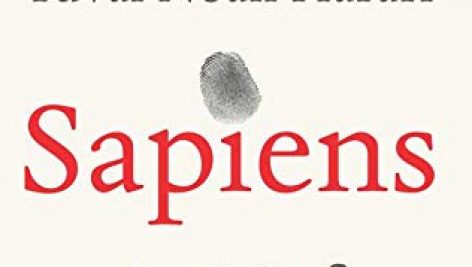
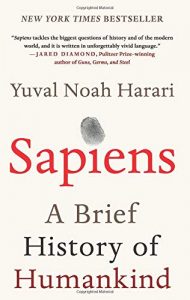
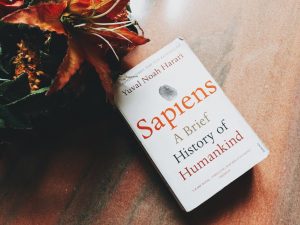
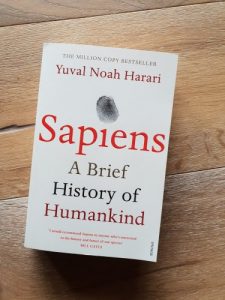

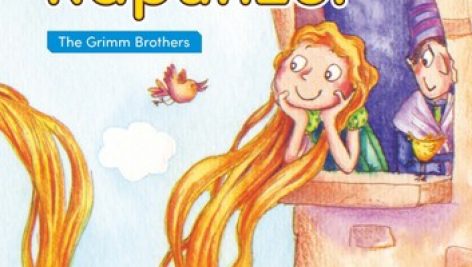
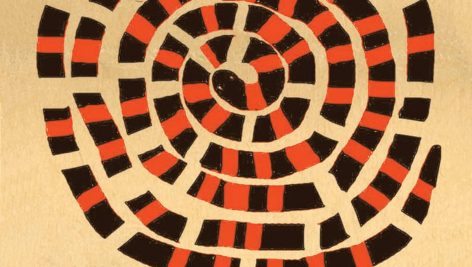

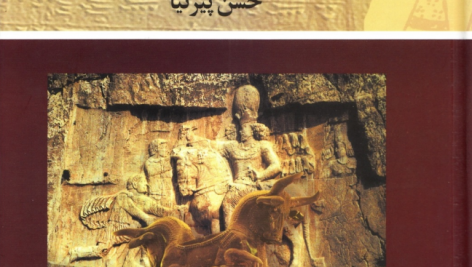
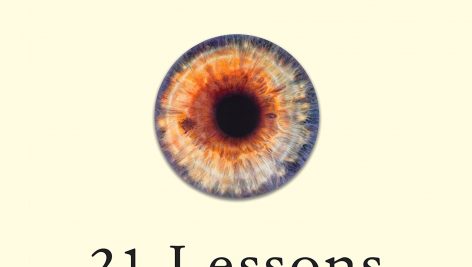
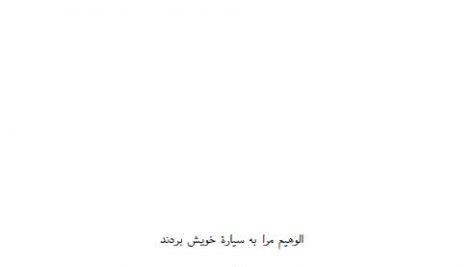


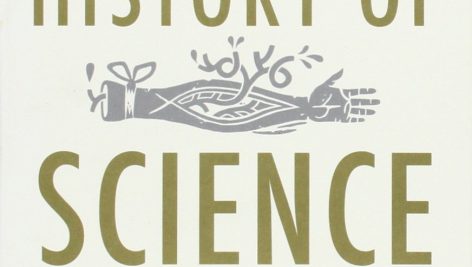

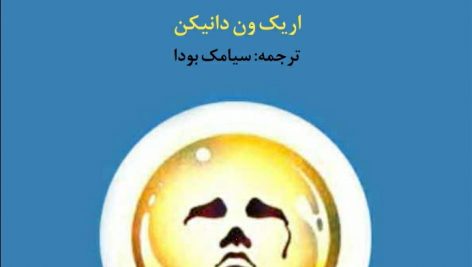
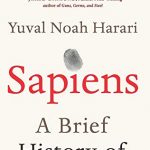
نقد و بررسیها
هیچ دیدگاهی برای این محصول نوشته نشده است.